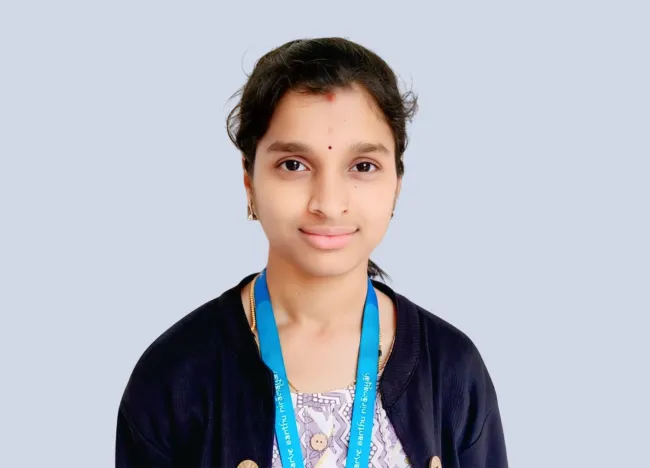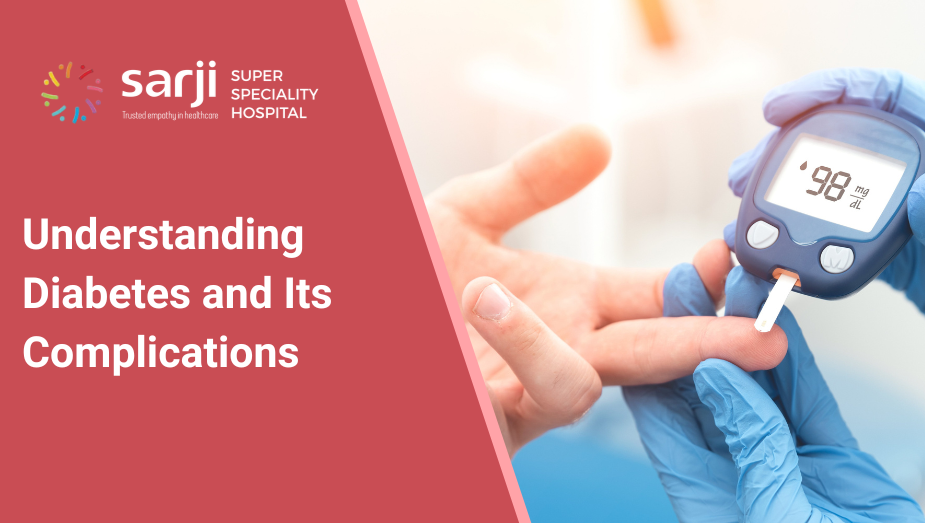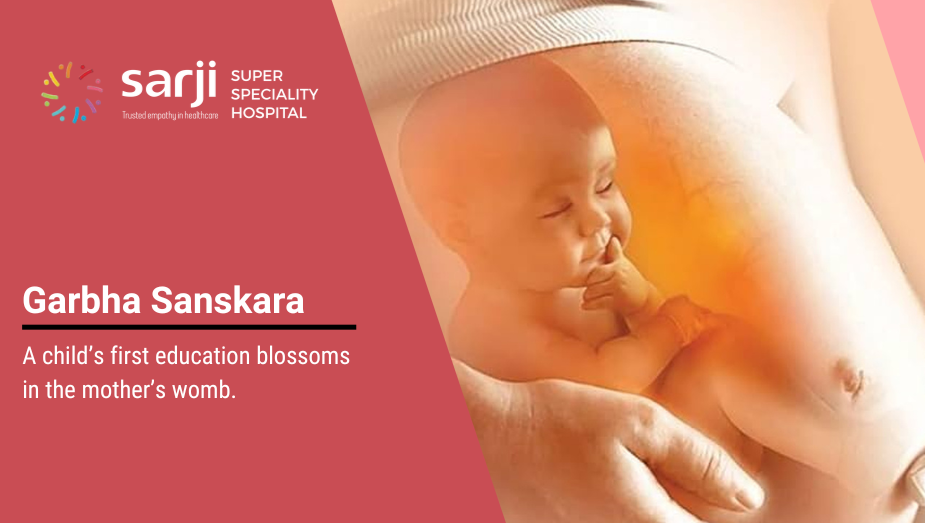Specialities
Sarji Fertility and Research Centre is a leading institution dedicated to helping individuals and couples realize their dreams of parenthood. Situated in Shivamogga, the center offers cutting-edge fertility treatments and personalized care, backed by advanced technology and a team of skilled fertility specialists.
The center provides a comprehensive range of specialties like In-vitro fertilization (IVF), Intrauterine insemination (IUI), Egg and sperm freezing, Genetic counseling and treatment for various fertility-related conditions. With a strong emphasis on research, Sarji Fertility and Research Centre stays at the forefront of reproductive medicine, ensuring the highest success rates and innovative solutions for complex cases.
Sarji Fertility and Research Centre is more than a medical facility—it is a place of hope and trust, committed to supporting patients every step of the way on their journey to parenthood. Welcome to Sarji Fertility and Research Centre, a leading fertility center in Shimoga dedicated to helping individuals and couples build families. We understand that the journey to parenthood can be challenging, and we are here to provide compassionate, personalized, and cutting-edge fertility care.
At SFRC, we offer a comprehensive range of fertility services, including in vitro fertilization (IVF), to address a variety of infertility issues. Our team of experienced fertility specialists, embryologists, nurses, and support staff are committed to providing the highest quality care in a supportive and comfortable environment.
We believe in empowering our patients with knowledge and understanding throughout their fertility journey. We strive to create individualized treatment plans tailored to each patient's unique needs and circumstances. Our state-of-the-art facilities and advanced technologies enable us to offer the latest advancements in fertility treatment, maximizing the chances of success.
We are dedicated to:
* Compassionate Care: We understand the emotional and physical challenges of infertility and provide empathetic support every step of the way.
* Expert Team: Our team comprises highly skilled fertility specialists, embryologists, nurses, and support staff with extensive experience in reproductive medicine.
* Advanced Technology: We utilize the latest technology and techniques in fertility treatment to achieve the best possible outcomes.
* Personalized Approach: We tailor treatment plans to each individual's unique needs, ensuring the most effective and appropriate care.
* Comprehensive Services: We offer a full range of fertility services, from initial consultation and diagnosis to advanced reproductive technologies.
We invite you to explore our website to learn more about our services, our team, and our commitment to helping you achieve your dream of parenthood. Contact us today to schedule a consultation and begin your journey towards building your family.
PGT stands for Preimplantation Genetic Testing. It's a sophisticated procedure used in conjunction with in vitro fertilization (IVF) to analyze the genetic makeup of embryos before they are transferred to the uterus.
Think of it as a way to get a sneak peek at the chromosomes and genes of developing embryos. Here's how it works:
* IVF is performed: Eggs are retrieved and fertilized with sperm in a lab, creating embryos.
* Embryo biopsy: A few cells are carefully removed from the developing embryo, usually at the blastocyst stage (5-7 days after fertilization).
* Genetic analysis: These cells are then analyzed in a lab to check for any genetic abnormalities.
* Embryo selection: The embryos that are found to have a normal genetic makeup are then selected for transfer to the uterus.
Why is PGT used?
PGT is used for several reasons:
* Increased chance of healthy pregnancy: By selecting genetically normal embryos, the chances of a successful pregnancy and a healthy baby are increased.
* Reduced risk of miscarriage: Many miscarriages are caused by chromosomal abnormalities in the embryo. PGT helps to reduce this risk.
* Preventing inherited diseases: For couples who are known carriers of a specific genetic condition, PGT can help to ensure they have a child free of that condition.
* Improving IVF success rates: PGT can be particularly beneficial for women of advanced maternal age, who have a higher risk of chromosomal abnormalities in their eggs.
Types of PGT:
There are different types of PGT, depending on what genetic issues are being screened for:
* PGT-A (Preimplantation Genetic Testing for Aneuploidy): This is the most common type, and it checks for the correct number of chromosomes in the embryo. Aneuploidy (having too many or too few chromosomes) is a common cause of miscarriage and genetic disorders like Down syndrome.
* PGT-M (Preimplantation Genetic Testing for Monogenic/Single Gene Disorders): This type is used when there is a known risk of a specific genetic disease, like cystic fibrosis or sickle cell anemia.
* PGT-SR (Preimplantation Genetic Testing for Structural Rearrangements): This is used when one or both parents have a structural rearrangement in their chromosomes, which can increase the risk of miscarriages or birth defects.
PGT is a significant advancement in reproductive medicine, offering hope to many couples facing infertility or the risk of passing on genetic conditions. However, it's important to remember that PGT is not a guarantee of a healthy pregnancy, and it's essential to discuss the benefits and limitations with a fertility specialist and genetic counselor.
Both IUI (Intrauterine Insemination) and IVF (In Vitro Fertilization) are fertility treatments that can help people with infertility conceive a child. However, they have different success rates.
IUI Success Rates
The success rate of IUI is typically lower than that of IVF. The average success rate for IUI is around 10-20% per cycle. However, this can vary depending on several factors, such as:
* The woman's age
* The cause of infertility
* The quality of the sperm
* The number of eggs that are released
IVF Success Rates
The success rate of IVF is higher than that of IUI. The average success rate for IVF is around 30-45% per cycle. However, this can also vary depending on several factors, such as:
* The woman's age
* The cause of infertility
* The quality of the eggs and sperm
* The number of embryos that are transferred
It is important to note that these are just average success rates. Some people may have higher or lower success rates depending on their individual circumstances. It is also important to remember that it may take more than one cycle of IUI or IVF to get pregnant.
Talk to Your Doctor
If you are considering IUI or IVF, it is important to talk to your doctor about your individual chances of success. Your doctor can help you understand the risks and benefits of each treatment and can help you make the best decision for your family.
The initial cost of IVF and tests in India can vary depending on several factors, including the clinic's location, the specific tests required, and the individual's medical history. However, here's a general overview of the costs involved:
* Fertility Assessment: This typically includes a consultation with a fertility specialist, a physical examination, and some basic blood tests to assess hormone levels and overall reproductive health. The cost for this assessment can range from Rs.5,000 to Rs.10,000.
* Semen Analysis: This test evaluates the sperm count, motility, and morphology. It usually costs between Rs. 1,500 and Rs. 3,000.
* Blood Tests: Several blood tests may be required throughout the IVF process to monitor hormone levels, screen for infections, and assess overall health. The cost of these tests can vary depending on the specific tests ordered and the clinic's pricing.
* Ultrasound Scans: Ultrasound scans are used to monitor the growth of follicles in the ovaries and to guide egg retrieval. The cost of each scan can range from Rs. 1,000 to Rs. 3,000, and several scans may be required throughout the IVF cycle.
* Hormonal Medications: Fertility medications are used to stimulate the ovaries and promote the growth of multiple eggs. The cost of these medications can vary depending on the type and dosage prescribed, and it can range from Rs. 20,000 to Rs. 40,000 or more.
* Egg Retrieval: This is a minor surgical procedure to collect the eggs from the ovaries. The cost of egg retrieval can vary depending on the clinic and the complexity of the procedure.
* Fertilization and Embryo Culture: This involves combining the eggs with sperm in a laboratory dish and monitoring the development of embryos. The cost of this step can vary depending on the clinic and the techniques used.
* Embryo Transfer: This is the procedure to place the embryos into the woman's uterus. The cost of embryo transfer can vary depending on the clinic and the number of embryos transferred.
In addition to these basic costs, there may be additional expenses for:
* ICSI (Intracytoplasmic Sperm Injection): This is a specialized technique used to inject a single sperm directly into an egg, and it may be recommended for couples with male factor infertility.
* PGT (Preimplantation Genetic Testing): This is a procedure to screen embryos for genetic abnormalities before they are transferred to the uterus.
* Donor Eggs or Sperm: If donor eggs or sperm are required, there will be additional costs associated with the donor and the procedure.
* Freezing and Storage of Embryos: If there are excess embryos after the transfer, they can be frozen and stored for future use. This incurs additional costs for freezing and storage.
Overall, the initial cost of IVF and tests in India can range from Rs. 90,000 to Rs. 2,50,000 or more, depending on the individual's needs and the clinic chosen. It's essential to discuss the costs involved with your fertility specialist and the clinic beforehand to have a clear understanding of the expenses involved.
Please note that this is just an approximate estimate, and the actual cost may vary depending on individual circumstances .It's always best to consult with our fertility specialist and the clinic to get a personalized cost estimate based on your specific needs.














